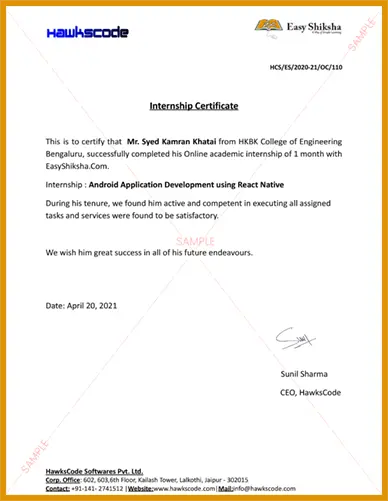In today’s rapidly evolving professional landscape, technical expertise is no longer enough to secure success. Soft skills—the interpersonal skills that enable individuals to interact effectively with others—are increasingly becoming a critical part of training programs across industries. These skills are essential not only for personal growth but also for fostering a positive work culture, improving collaboration, and enhancing overall productivity. Whether you’re a professional looking to advance your career or someone starting a free internship to gain experience, focusing on these soft skills can make all the difference.
In this article, we will explore the top five soft skills that should be integrated into training programs to help individuals thrive in their careers.

1. Communication Skills
Communication is the cornerstone of almost every interaction in the workplace, whether it’s with colleagues, clients, or supervisors. Effective communication ensures that your ideas are clearly understood, and it helps in resolving conflicts, sharing feedback, and building relationships.
Incorporating communication training into professional development can significantly boost your career. Communication skills include verbal, non-verbal, and written communication. Training programs should focus on:
- Active Listening: This involves paying full attention to the speaker, asking questions for clarification, and refraining from interrupting.
- Clarity and Conciseness: Being able to express ideas in a clear, concise, and straightforward manner is crucial in both written and verbal communication.
- Empathy: Showing understanding and compassion when communicating with others helps build rapport and trust.
For those looking to break into the workforce through a free internship, mastering communication skills can improve your chances of standing out, as employers highly value individuals who can articulate their thoughts and collaborate effectively.
2. Teamwork and Collaboration
The ability to work effectively in a team is another critical soft skill that should be included in training programs. In most work environments, collaboration is key to accomplishing tasks and achieving organizational goals. Being able to contribute positively to a team effort, share responsibilities, and work toward a common goal is vital.
Effective teamwork requires:
- Adaptability: Being flexible and adjusting to different team members’ working styles is essential for a harmonious work environment.
- Conflict Resolution: Conflicts can arise in teams, but knowing how to handle disagreements respectfully and professionally is crucial.
- Supportiveness: Offering support and encouragement to fellow team members boosts team morale and productivity.
For individuals pursuing a free internship, learning how to be an effective team player will enable you to contribute meaningfully to projects and establish strong relationships with colleagues and mentors.

Internship/Training with universally recognized certificates accepted by all Universities and Industries
Join over 1,00,000 students from 300+ universities who have already completed internships with EasyShiksha and are now employed at leading MNCs.
"Unlock Your Potential, Forge Your Path"
Explore More3. Problem-Solving and Critical Thinking
Problem-solving skills are invaluable in any workplace. Employers look for employees who can think critically, analyze situations, and come up with effective solutions. Developing problem-solving skills through training programs can equip employees with the ability to navigate challenges and find creative solutions.
Training should focus on:
- Analytical Thinking: Being able to assess problems, break them down into manageable components, and analyze potential solutions.
- Creativity: Innovative thinking can often help in finding new ways to solve problems, especially in industries that require constant adaptation.
- Decision-Making: Training individuals to make informed and well-considered decisions quickly is a key aspect of problem-solving.
For individuals starting a free internship, these skills are valuable for standing out as proactive and resourceful, as interns are often asked to solve smaller problems or take initiative in different projects.
4. Time Management
Time management is an essential skill that contributes to productivity, reduces stress, and helps individuals meet deadlines effectively. In today’s fast-paced work environment, knowing how to prioritize tasks, manage time efficiently, and balance multiple responsibilities is crucial.
Training programs should emphasize:
- Prioritization: Learning how to determine the most important tasks and tackle them first, without getting overwhelmed by less urgent activities.
- Task Delegation: For those in leadership roles, knowing how to delegate tasks efficiently helps in optimizing time and team resources.
- Avoiding Procrastination: Encouraging employees to stay focused and avoid putting off tasks until the last minute helps maintain productivity.
For interns, learning time management early on can ease the transition into the workplace and ensure they meet deadlines, especially when juggling multiple projects or tasks.
5. Emotional Intelligence (EQ)
Emotional intelligence, or EQ, is the ability to recognize, understand, and manage one’s own emotions, as well as the emotions of others. It plays a crucial role in how people interact with each other and how they handle stress, conflict, and decision-making.
Training in emotional intelligence should include:
- Self-Awareness: Understanding one’s emotions and how they affect behavior and decision-making.
- Self-Regulation: The ability to control impulsive feelings and behaviors, especially under stress.
- Social Skills: Building rapport with others, maintaining positive relationships, and handling social situations with ease.
EQ is especially valuable in team-based environments and leadership roles. For someone pursuing a free internship, demonstrating high emotional intelligence can help foster strong professional relationships and ensure smooth interactions with supervisors and peers.
Important Announcement – EasyShiksha has now started Online Internship Program “Ab India Sikhega Ghar Se”
Why Focus on Soft Skills in Training Programs?
Incorporating soft skills into training programs is not just about improving interpersonal dynamics within teams; it’s also about preparing individuals to handle the complexities of the modern workplace. While technical skills are important, soft skills like communication, teamwork, and emotional intelligence help individuals navigate challenges, foster collaboration, and adapt to change. Furthermore, many employers view soft skills as indicators of a candidate’s potential for long-term success.
For those beginning their professional journey through a free internship, focusing on soft skills can ensure you stand out to employers who are looking for more than just technical expertise. The ability to communicate well, collaborate effectively, and manage your emotions can make you an asset to any organization, improving your chances of securing a full-time position after your internship.
Also Read: The Top 8 Trends Shaping Digital Marketing: Insights from Our Course
Get Courses: free online courses with certificates
Conclusion
Soft skills are no longer considered optional in the workplace; they are essential to individual success and organizational growth. By focusing on training programs that enhance skills like communication, teamwork, problem-solving, time management, and emotional intelligence, professionals can ensure they are prepared to handle the diverse challenges they’ll face in their careers. Interns, in particular, can benefit greatly from honing these skills during their free internship, setting themselves up for future success. Platforms like EasyShiksha.com offer a range of courses that can help individuals develop these critical soft skills, preparing them for the dynamic demands of the modern workforce.


































































